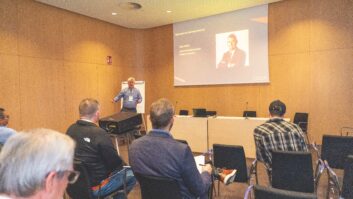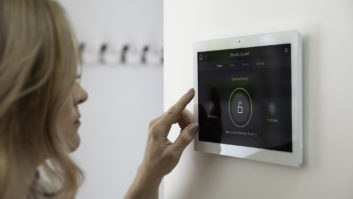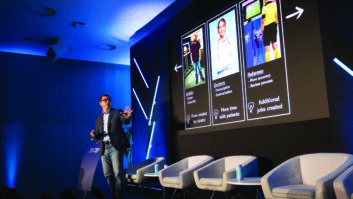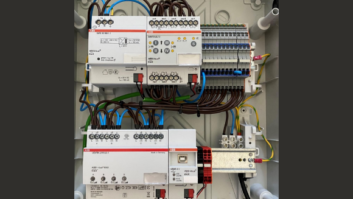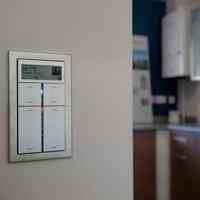
This month sees an important step towards the development of cost-effective systems integrating ‘smart’ control of energy management with a host of other in-home functions that can be used interactively. This will be the culmination of collaborative research carried out by TAHI (The Application Home Initiative) and BRE (Building Research Establishment): other project partners include De Montfort University, EDF, Open Hub and Tridium. This key project is part of the Technology Strategy Board’s current smart energy – smart home programme.
A key feature of the project is a demonstration centre and foundation for a test facility at BRE Innovation Park, Watford. This launches on 31 March alongside a free one-day workshop at BRE Watford: Smart Energy: Interoperability & Service Aggregation Workshop. The intent of TAHI’s interoperability framework is to help create the largest market opportunity for digital systems in the built environment, driving the development and availability of affordable and integrated digital systems for monitoring and managing homes and other buildings.
Dr Mike Perry, who co-ordinates the project from his base at BRE, believes that the next phase in the development of internet technologies is the internet of buildings, including our homes. “If successful, this will enable us to interact with buildings in ways that have not been possible before – creating major opportunities for more effective use of scarce resources such as energy and water,” he says. He goes on to identify four important themes for digital applications in the built environment:
• To monitor and manage the functions of energy, water and other resource use in the built environment.
• In public services the monitoring and management of long term conditions, particularly for the increasing population of over-60’s with conditions such as type II diabetes, heart and respiratory conditions and degenerative problems such as Alzheimer’s. “There are now more over 60’s than under 18’s in the UK – a common global trend. The use of digital infrastructure to support the delivery of telecare and tele-health will potentially reduce the strain on National Health Service budgets,” says Perry. “Assisted living for the older generation can be provided via buildings with fully functioning interactive smart facilities.”
• Digital infrastructure encourages the setting up of small businesses through internet access and mobile communications.
• The question of digital exclusion is clearly demonstrated by the nine million people in the UK who have still never accessed the internet.
The UK government recognises the importance of digital infrastructure and services. This was demonstrated when Jeremy Hunt, Culture Secretary, announced the latest initiative in December 2010 at the launch of the Government’s strategy document: Britain’s Superfast Broadband Future. The Government will invest £530 million to establish fibre points in communities throughout the UK by 2015, establishing Britain’s Superfast Broadband infrastructure. This investment will, according to the action plan announced by the Minister, “cut the costs of and access to infrastructure – increasing shared access, work with house builders to make new homes broadband ready and cutting the costs of laying cable by clarifying the rules on streetworks”.
Perry thinks that “interoperability is vital to open the market for digital infrastructure. It will provide a common method for communication between digital devices enabling us to exploit the huge potential of integrated communications in the built environment.”
Medilink Yorkshire and Humberside believes that ageing is the biggest challenge facing the NHS. “Technology will provide an essential part of the solution,” managing director Kevin Kiely told the Financial Times recently.
TAHI’s interoperability framework will support the development of integrated control systems that are affordable, acceptable and accessible to every home.
You can book for the free one-day event at BRE Watford – Smart Energy: Interoperability & Service Aggregation Workshop – at [email protected] or by phoning +44 1923 664800
www.bre.co.uk/events
www.theapplicationhome.com
www.innovateuk.org

